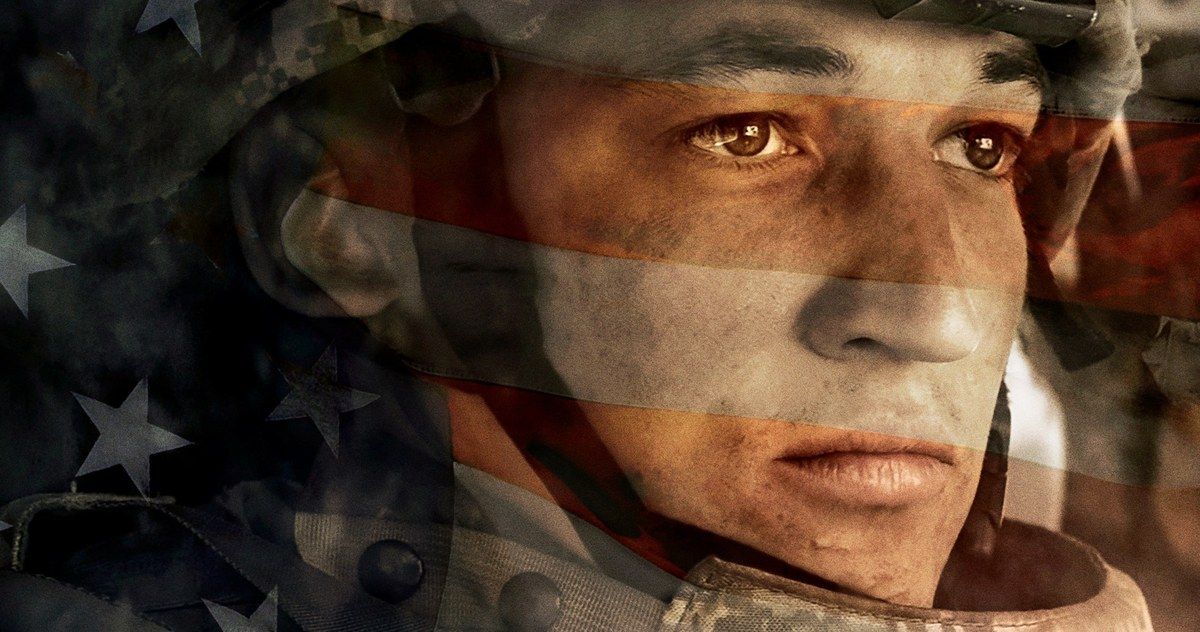Thank You for Your Service is a sobering look at the complications soldiers face when returning home from war. Based on the book by David Finkel, it is the true story of Sergeant Adam Schumann and the men in his unit. It is not an action flick extolling the prowess of American might in combat. The film is a sincere, harrowing journey through post traumatic stress disorder (PTSD), and the havoc it wreaks on families. It is also a searing indictment of society's failure to properly care for these men. They fought an unpopular war for their country. Then were treated as an afterthought as they struggled to adjust to civilian life.
Thank You for Your Service begins with Adam Schumann (Miles Teller) coming home to Kansas after three tours in Iraq. He's joined by two men in his unit, Will Waller (Joe Cole) and Tausolo Aieti (Beulah Koale). They are overjoyed to be stateside, especially after suffering losses in their last deployment. Schumann has been an absentee husband to Saskia (Haley Bennett) and their two children. Waller longs to see his girlfriend and put the war behind him. Aieti is gung ho about reenlisting, but hasn't told his wife (Keisha Castle-Hughes) about his plans.
Home life is challenging from the start. The men are accosted by the widow (Amy Schumer) of a fallen comrade at their welcome back ceremony. She wants to know how her husband died. This tragic meeting shatters the veneer of normalcy. The men begin to break down. Waller's girlfriend has left him. The army forces Aieti to retire. Schumann puts up a brave face, but is haunted by his actions in the war. The men, heroes abroad for their country, are thrown to the wind by a daunting veterans bureaucracy. Their lives spiral out of control with tragic consequences.
Thank You for Your Service is a powerfully dramatic film. Writer/director Jason Hall pulls no punches in depicting the mental agony the characters face. Schumann, used to being the leader, tries to be the pillar to his men. But it is all for show, he is severely wounded inside. His wife senses the despair and tries everything to understand what he's going through. Aieti is a walking time bomb. Waller is not emotionally capable of facing abandonment. These men, ironically, are the lucky ones. They still have their limbs. Their bodies haven't been shredded by IED shrapnel or bullets. While some men died, others survived with horrific injuries. The guilt the survivors face is exacerbated by the wounds of their comrades.
Hall does an excellent job of showing the familial support of the soldiers. As well as damning the inadequacy of the government's response to their well being. The Department of Veterans Affairs is lambasted in this film. Schumann and his men were essentially hung out to dry by red tape. You will seethe with fury during these scenes. The wives and girlfriends were left to pick up all the pieces. They had to handle every volatile situation, while caring for children, and providing financial support. They weathered the storm with the soldiers.
Thank You for Your Service has several combat scenes, but the vast majority of the film takes place at home. It is not an action film in any sense, so don't see this expecting the battles of American Sniper. Thank You for Your Service is an anti-war film. The combat reinforces the crushing sadness of war. Miles Teller and Beulah Koale are superb in their portrayals of Schumann and Aieti. They were the guys next door, with hopes, and dreams like anyone else.
From Universal Pictures, Thank Your for Your Service is an intense and thought-provoking film. It is not hyperbolic. The story of Schumann and his soldiers is devastatingly straightforward. They were failed in many ways by the country they gave everything to fight for. Perhaps it is fate that this film is released at a time when Gold Star families are being used as political footballs.

